Steph Niaupari’s Global Grindr Mission: World Pride Profile
Grindr for Equality's Steph Niaupari conquers the world from D.C., leading an effort to keep the LGBTQ community connected

Everybody knows Grindr. “Dating app.” “Hookup app.” “Social-networking app.” It may mean different things to different people, but there is no denying its global impact. According to Grindr, the app reaches more than 14 million users monthly, 80 percent of whom are outside the United States.
That’s a heck of a global party. But spend a little time with D.C. resident Steph Niaupari, and you’ll quickly learn that there’s much more to Grindr than fun and games. There is Grindr for Equality, this year marking its 10th anniversary. The effort notes that in 2023 alone, it “provided more than $1.5 million in direct financial aid to more than 150 LGBTQ+ organizations worldwide.” Niaupari is this particular effort’s senior manager.
So, what does a day in the life of Grindr for Equality’s lead look like?
“A typical day is hard, because it always depends on where I am in the world,” offers the gender nonbinary, transmasculine Niaupari, speaking from Ecuador. “It’s collaborating with product teams, engineering, legal, making sure our users are safe and have access to resources. I get to address unique health needs that LGBTQ individuals have, making sure anywhere in the world our users are able to know where their HIV/STI testing site is located, which one is closest to them. We want to make sure that our users have mental health services, whether virtually or in person.
“Then there’s thinking about movements that are being built, legislative fights that are going on in other countries, letting our users be part of that.
“In some cases, people are just coming out. And one of the ways to kind of explore themselves and figure out what community means is Grindr. We’re building that space where Grindr is your ‘neighborhood in your pocket.’ You should be able to open your phone and see what’s near, what support services, and the people you can connect with.
“In terms of how to translate that into my day, it’s coordinating with over 250 different partner organizations to bring in those programs that they have on the ground and putting that into the app.”
That very full day in service of building and assisting the community on a very robust app might seem like plenty in and of itself, but add the travel on top of that. The Ecuador angle touches both on Niaupari’s dual citizenship, as well as wrapping up their thesis regarding nonbinary identities in Ecuador. Work recently had them in South Africa for the ILGA (International Lesbian, Gay, Bisexual, Trans, and Intersex Association) World Conference. Then there’s the ILGA Asia conference come late February in Nepal. There’s a rights conference in Taiwan, some marriage equality work in Japan, and a sexual health consortium in Moldova.
While Niaupari must face world-class jetlag challenges on top of simply getting the job done, they’ve still made time for so much more. There’s Plantita Power, a local effort distributing thousands of seed kits and seedlings annually in an effort to “foster sustainable practices and food and body liberation,” which they lead. There’s the spot on The Pleasure Project‘s advisory committee, working to eroticize safer sex, as well as serving on the advisory board for the National Institutes of Health LGBTQ+ Cancer Survey. And Niaupari’s still involved with the Latinx History Project’s DC Latinx Pride, even if they no longer lead it.
Growing up in Queens, N.Y., Niaupari has long been a sort of community nexus, thanks to Terranova House of Cakes, their parents’ bakery of years past. In this sweet spot, longtime residents and newcomers alike, representing America’s beautifully diverse immigrant tapestry, would mingle over coffee, cakes, and newspapers of countries they left. It offered young Niaupari a glorious cultural klatch on a daily basis.
“I remember being woken up by my dad at 4 o’clock in the morning to help take out the bread to the counters,” recalls Niaupari with obvious fondness. “We had all types of people come in. At one point I would be able to sell things in Italian. I could speak in Polish. Whoever would walk in the door, I would try to figure out a way to connect with them — partially to sell them something. We had some folks who had recently emigrated from Korea. I got to see so many people from all over the world while I was growing up in the bakery. We saw a wave of immigrants come through.”
Niaupari gives plenty of credit to that bakery background for not only being a persuasive salesperson but for developing an inspiring grasp of language. Today, there’s not much point in asking them how many languages, exactly, as the list keeps growing. There’s English, Spanish, and Portuguese, for starters, though they’re getting back into Polish. And Vietnamese has entered the arena to better communicate with a dear friend, as well as their interest in translating a Vietnamese sexual-education book.
Not surprisingly, Niaupari has long been an inexhaustible student. How else to earn — at barely 30 — a master’s degree in international development, dual bachelor’s degrees in international studies and Spanish, and an associate’s degree in deaf studies? The great bulk of that scholarship happened in Washington’s famed Gallaudet University, the world’s foremost institution for deaf and hard-of-hearing education, dating to 1864. All the more testament to Niaupari’s drive to connect with others and build community.
“Gallaudet could have been in Alaska,” they state bluntly. “I would’ve gone to Alaska.”

But Alaska’s loss is D.C.’s gain, thanks to a language requirement when Niaupari began studying veterinary science at City University of New York’s LaGuardia Community College. With a busy schedule, also serving as the youngest employee at the John F. Kennedy International Airport Brookstone — having graduated high school a year early, of course — the only language class that could fit into their busy day was American Sign Language.
“I had a very good professor, a Black woman who really saw how interested I was in the lexicon, the grammar,” Niaupari shares. “She took me under her wing, would take me to events, would invite me to her church, would just expose the language to me so much…. I decided to change my major from vet tech to deaf studies. I finished my degree, and then I went to Ecuador. I had thought of becoming an interpreter while I was in that program, and the director said, ‘You don’t look like an interpreter.’ If we look at the numbers, the majority of interpreters are white women.”
In Ecuador, Niaupari developed an interest in inclusive language policies, working with a government agency to expand access to interpreters for deaf people in public spaces such as hospitals and universities.
“That became a big passion of mine,” they say. “I started thinking about what higher education looks like for deaf students in Ecuador, and decided I needed to learn more to be able to work in the policy space. So, I went to Gallaudet.”
The themes that clearly attach themselves to Niaupari are themes of community, communication, and advocacy. They clearly do not like seeing anyone neglected or left behind. Those themes blend in ways that make Niaupari an unapologetic force — proudly big and brown, to borrow their descriptors — who won’t be bullied or blocked. They’re fully aware of the current need for this type of unbowed leadership as the LGBTQ community faces down monumental political and cultural challenges.
World Pride offers a unique opportunity to flex that leadership.
“I’m still very excited for World Pride, even with this change of administration,” Niaupari says. “Having people visit Washington, D.C., is extremely important. As much as it’s a celebration, people are really coming together to network and exchange ideas, to counteract all of these [harmful] policies. This is going to put a face to what this legislation looks like.
“The proximity to lawmakers, specifically, creates a very unique opportunity to have these dialogues, to demonstrate to folks that we’re not going anywhere. Y’all can make all the decisions you want. We’re not going anywhere. We’re still going to live our lives. And we’re gonna make sure that you know about it.”
This profile is part of an exclusive Metro Weekly series leading up to World Pride 2025, highlighting the global reach of D.C.-based organizations, activists, artists, and others.
Support Metro Weekly’s Journalism
These are challenging times for news organizations. And yet it’s crucial we stay active and provide vital resources and information to both our local readers and the world. So won’t you please take a moment and consider supporting Metro Weekly with a membership? For as little as $5 a month, you can help ensure Metro Weekly magazine and MetroWeekly.com remain free, viable resources as we provide the best, most diverse, culturally-resonant LGBTQ coverage in both the D.C. region and around the world. Memberships come with exclusive perks and discounts, your own personal digital delivery of each week’s magazine (and an archive), access to our Member's Lounge when it launches this fall, and exclusive members-only items like Metro Weekly Membership Mugs and Tote Bags! Check out all our membership levels here and please join us today!




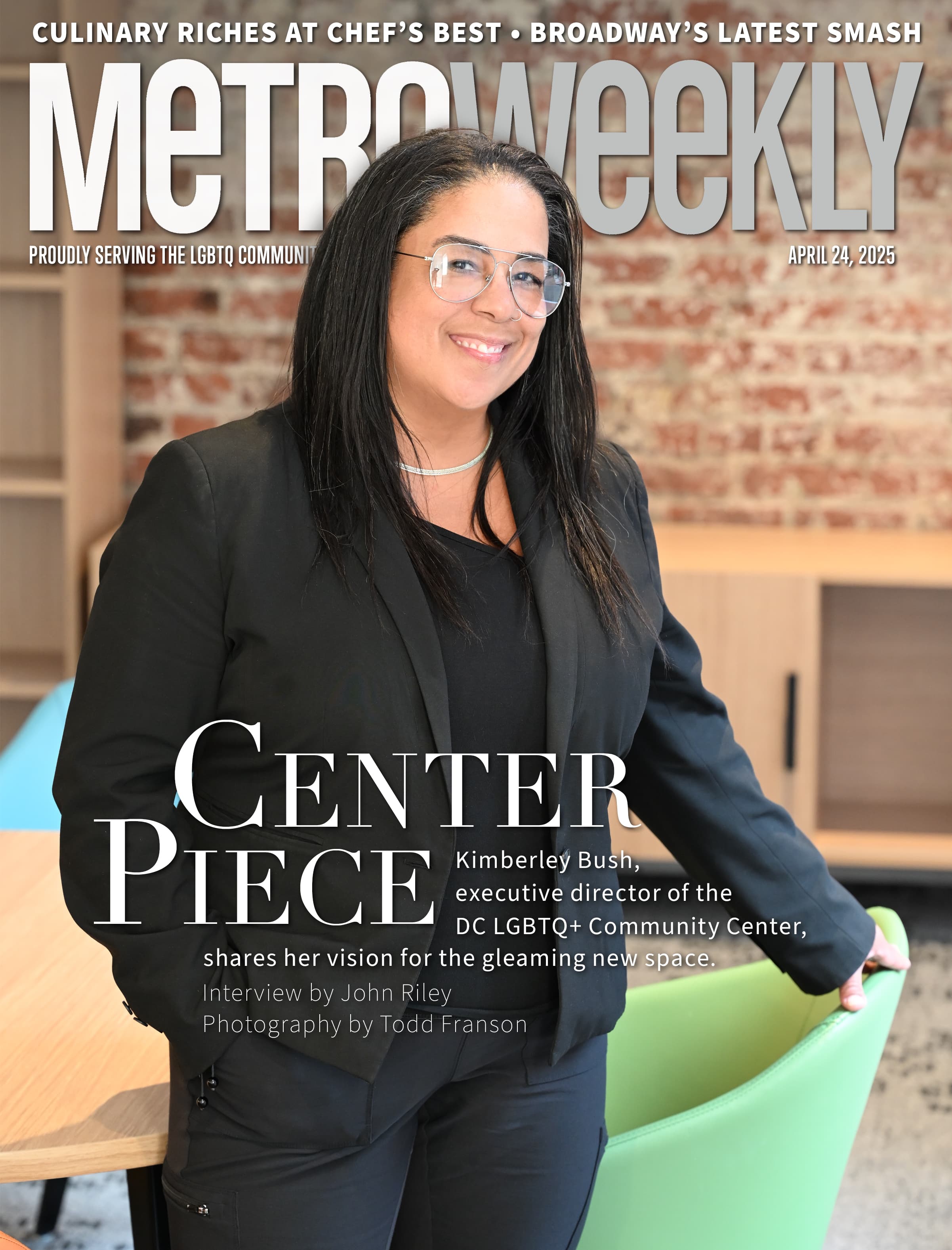
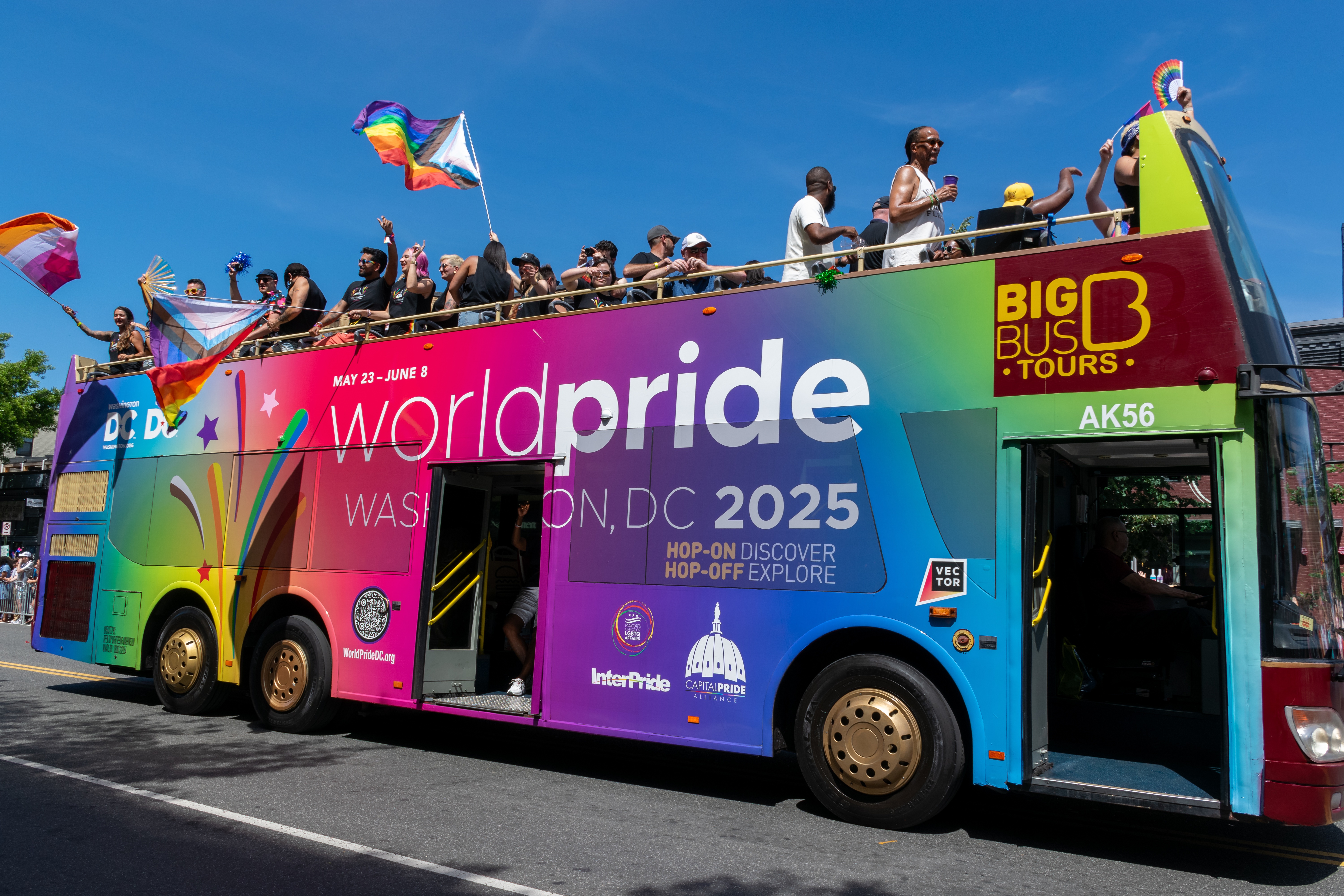
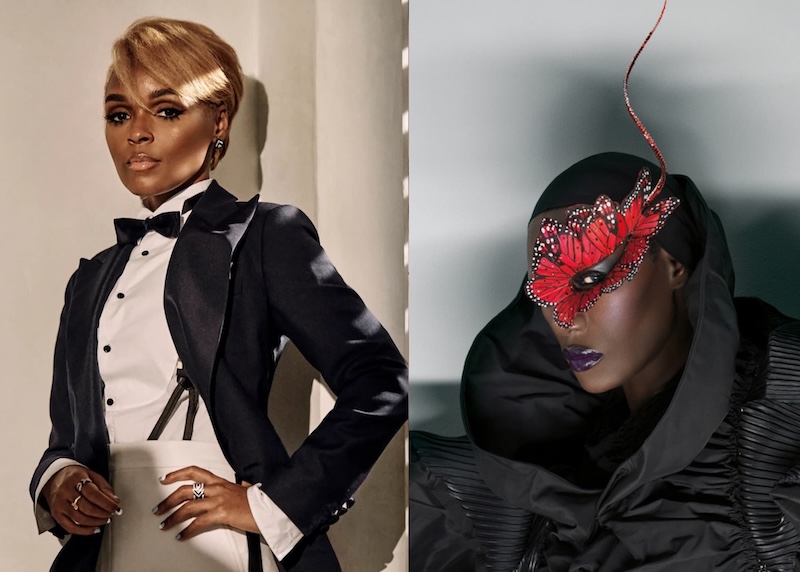
















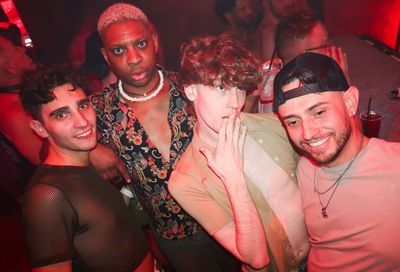
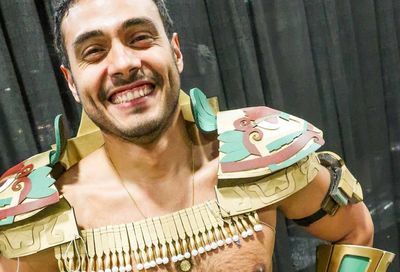
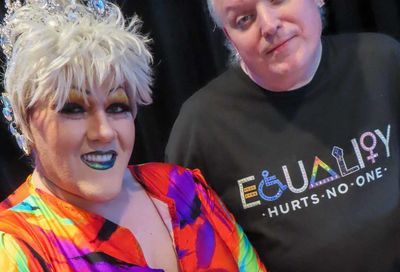
You must be logged in to post a comment.